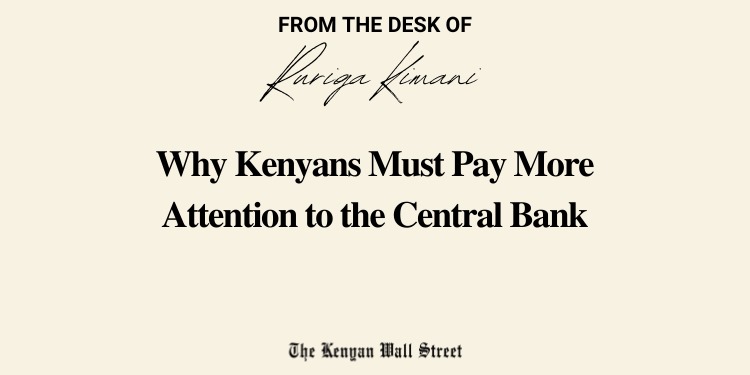Over the past two years, Kenya has witnessed a significant shift in public policy development.
What was once an elite-driven process dominated by government bureaucrats is gradually evolving into a more citizen-led endeavor. Historically, economic policies were crafted and implemented by technocrats—government civil servants often seen as beholden to Bretton Woods institutions, foreign missions, and influential lobbyists representing big business interests.
These policies were then sanitized through the political system, which purportedly represented interests of the people.
Despite enduring political and economic uncertainties, citizen participation in governance has been an important silver lining. In the last two years, Kenyans have increasingly challenged the monopoly of ideas held by bureaucrats and politicians, reclaiming their place as key stakeholders in shaping the country’s economic trajectory.
Through public protests, litigation, social media campaigns, and public participation forums, citizens are influencing governance by demanding fair taxation, prudent public spending, and institutional integrity. Today, policymakers pay closer attention to public sentiment when drafting new laws or revising past failed policies.
Yet, one critical institution has remained largely untouched by citizen scrutiny: the Central Bank of Kenya (CBK). Despite its profound influence on Kenya’s economic well-being, CBK has largely operated outside the purview of public debate.
This is perhaps due to its reputation for transparency, independence, and scandal-free operations—a stark contrast to the more politicized fiscal authorities. However, this perception has led many Kenyans to underestimate how CBK’s actions shape their daily lives.
While the goal is not to rally citizens for or against CBK decisions, it’s time Kenyans directed some of their attention to this institution, which plays a pivotal role in determining their economic future.
A Key Moment for Kenya’s Economic Direction
On December 4, 2024, the CBK’s Monetary Policy Committee (MPC) will convene to deliberate on the Central Bank Rate (CBR)—a critical tool for influencing inflation, money supply, and economic growth.
The CBR’s effectiveness as a monetary policy instrument has improved markedly in recent years, thanks to CBK’s recent reforms aimed at enhancing the transmission of monetary policy into financial markets.
This effectiveness has been evident in the MPC’s recent actions. Between August and October 2024, the CBR was reduced from 13% to 12.75% and then further to 12%. These decisions signaled a shift toward monetary easing to address declining economic growth in 2024, buoyed by the stabilization of inflation at historically low levels.
In October 2024, Kenya’s inflation rate stood at just 2.7%—its lowest in a decade. This remarkable achievement resulted from a tight monetary environment that curbed price pressures.
Meanwhile, global trends indicate a broader easing of monetary policies: both the US Federal Reserve and the Bank of England reduced their policy rates by 25 basis points earlier this month as inflationary concerns in advanced economies subsided. Given these developments, all eyes should be on the upcoming MPC meeting. A further reduction in the CBR is not only expected but also necessary.
Why the December 4 Meeting Matters
We anticipate the MPC will reduce the CBR by 200 basis points to 10%, with a commitment to review the rate again no later than mid-January 2025. Such a move would rejuvenate credit flow to the private sector, sparking much-needed investments that could boost productivity across various sectors. As the country edges closer to a new year, such a signal from the CBK could instill renewed optimism and confidence in Kenya’s economic prospects.
Kenyans must understand that the Central Bank’s policies directly influence their lives—from the cost of borrowing to the prices of goods and services. While fiscal policies often dominate public discourse, the Central Bank’s monetary decisions are just as critical in shaping the nation’s economic health.
The time has come for citizens to give the CBK the attention it deserves. As Kenya navigates this critical juncture in its economic journey, engaging with monetary policy matters will ensure that the voices of ordinary Kenyans are considered in decisions that affect their livelihoods.
Let December 4, 2024, be the start of a more informed and engaged public discourse around monetary policy—a step toward a more inclusive economic future.
The views expressed here are the author’s own and do not necessarily reflect the editorial stance of The Kenyan Wall Street.



